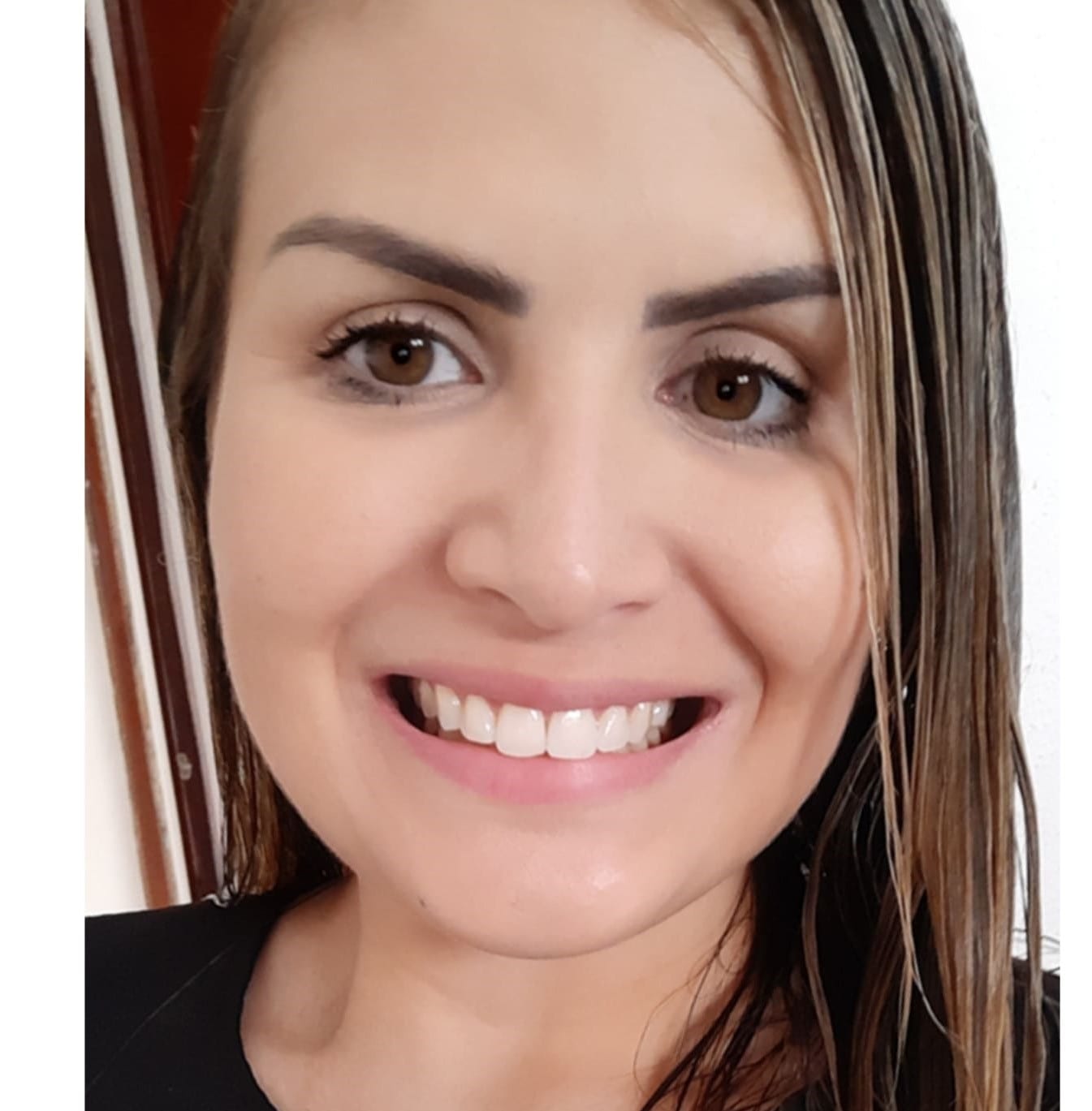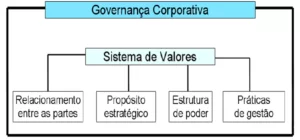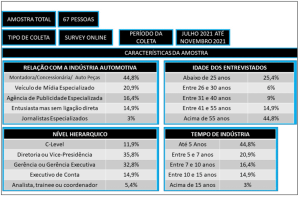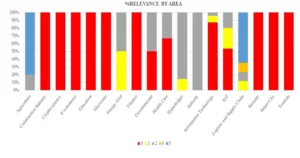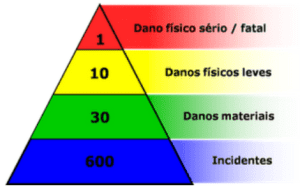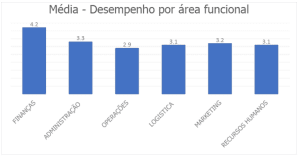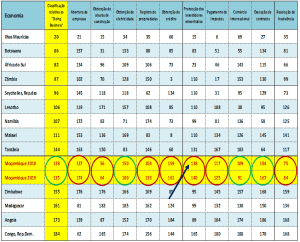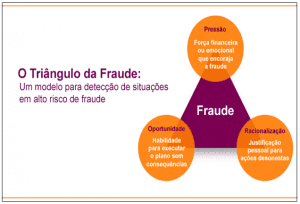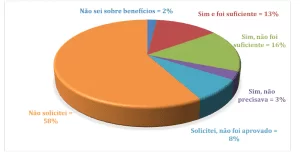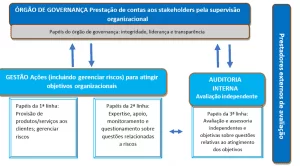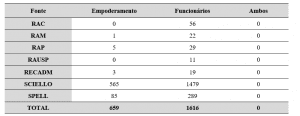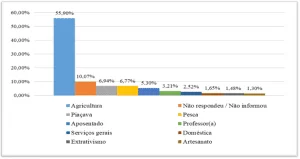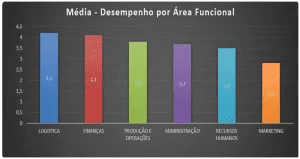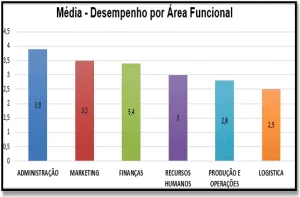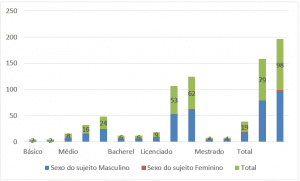REVIEW ARTICLE
OJEDA, Nataly Luiza Nantes [1], FONSECA, Mirella Villa de Araújo Tucunduva da [2]
OJEDA, Nataly Luiza Nantes. FONSECA, Mirella Villa de Araújo Tucunduva da. Venezuelan immigration as a public sector problem. Revista Científica Multidisciplinar Núcleo do Conhecimento. Year 05, Ed. 10, Vol. 16, pp. 103-115. October 2020. ISSN: 2448-0959, Access link: https://www.nucleodoconhecimento.com.br/business-administration/venezuelan-immigration
SUMMARY
Venezuela has been experiencing a political, humanitarian and economic crisis since 2013, as a reflection of this crisis, with a large outflow of Venezuelans fleeing the clashes and the lack of basic insum for survival. Many of these migrants choose regions close to their country of origin so as not to distance themselves from their families. Roraima is the most affected of the Brazilian states, since it is bordered by Venezuela, the great migratory flow happens through the municipality of Pacaraima. This article explains about venezuelan migration to Brazil and how reception, interiorization and public policies adopted by the Brazilian government occur, its causes and impacts. The research was carried out, methodologically, based on a bibliographic and documentary study, where books, journals, web pages and legislation were analyzed to achieve the final result of this scientific article. As a suggestion for the problem faced, at the end of this, the integration and cooperation of the government tripartite (federal, state and municipal) with non-governmental entities and civil society through a strategy of incentives and social awareness is cited.
Keywords: Venezuelan immigration, public policies, internalization.
1. INTRODUCTION
Since Nicolás Maduro took office after Hugo Chávez’s death, there has been an increase in public discontent with the government that had inflation of more than 800% per year, the rise in oil prices and exorbitantly raised product prices, causing shortages and rationing of products in markets and an increase in the unemployment rate. These were some of the points that aggravated the situation in Venezuela, thousands of Venezuelans began to migrate to other countries seeking opportunities to have a more dignified life and fleeing the economic collapse that resulted in the humanitarian, economic and social crisis experienced in Venezuela.
Most migrants prefer to flee to regions near the border, to be close to their families and because they believe it is easier to return after the crisis, this has caused great disruption in border countries that were not prepared for this increase in the number of migrants. Roraima is the Brazilian state most affected by Venezuelan migration due to its proximity to Venezuela, the migratory flow comes through the municipality of Pacaraima. When Venezuelans arrive in Brazil, Venezuelans face a situation of vulnerability and marginalization, as they stay in public squares, streets or makeshift shelters, increasing numbers of violence, robberies, rapes and beggars on the streets. To get money they are subjected to situations analogous to slave labor and suffer various violations of labor rights, in addition to facing problems such as xenophobia.
Roraima cannot shelter the large concentration of Venezuelans who have migrated in search of basic insums that were missing in their country and who are looking for job offers and new opportunities for prosperity. In view of the humanitarian crisis, vulnerability and human rights violations affecting Venezuelans in the current scenario, the Brazilian government had to take part and create and enforce public policies for the relocation and socialization of migrants in the country, for this was done a study by the federal government in partnership with the Armed Forces, Ministries of esplanade, agencies of the UN system in Brazil and civil entities , for interiorization, which aims to distribute to other states this contingent providing job opportunities and possibilities for a dignified life.
The present work sought, even in view of the scarcity of official figures, to show how the Venezuelan migration flow has been occurring, to point out the main difficulties in arriving in Brazil, to analyze the Program of Interiorization of Operation Welcome and which government has been the government’s conduct to help combat the discrimination of Brazilian society in relation to immigrants.
2. THE INCREASE IN THE VENEZUELAN MIGRATION FLOW TO BRAZIL
Nicolás Maduro took power in 2013 after the death of Hugo Chávez, who had been president of Venezuela since 1999. With Chávez’s death, the then-vice president, Maduro, took power on an interim basis and called new elections, being elected for a six-year term on April 15, 2013. Although at the beginning of Maduro’s term of office had a high approval rating, problems soon began to appear, the economy was already devastated, which led to a fall in the price of barrels of oil, Venezuela’s main export product and the source of revenues that financed social services and programs. Oil sales accounted for 98% of export revenues and up to 50% of Gross Domestic Product (GDP). Maduro was re-elected in May 2018 in an election with numerous allegations of fraud and charges of violating basic principles of democracy. The legitimacy of the election was contested by the opposition and the international community, generating the intensification in the Venezuelan crisis.
To get a point about the situation in Venezuela, according to Rupert Colville, spokesman for the UN High Commissioner for Human Rights, that between January 21 and 26, 2019, more than 850 people were arrested by the country, the highest number of arrests in the country, among those arrested, there are 77 children, some of them only 12 years old, the organization also reported that the number of deaths in the crackdowns reached 40. This was a reflection of an onslaught by the opposition that declared acting president the opponent Juan Guaidó. (G1, 2019)
As reported by the International Organization for Migration (OIM) and the UN Refugee Agency (UNHCR), the number of Venezuelan refugees has skyrocketed from about 695,000 at the end of 2015 to more than 4 million by mid-2019, becoming one of the largest displaced population groups in their country. The figures are alarming about one million people have left Venezuela since November 2018. The countries that received the most Venezuelans are Colombia for about 1.3 million, followed by Peru with 768,000, Chile 288,000, Brazil 168,000 and Argentina 130,000. (UNHCR, 2019)
The main difference between the expression “immigrant” and “refugee”, is that the immigrant intends to return to his country, even if in an illusory way, while the refugee will hardly be able to return, either by choice or by matters unrelated to his will. Brazilian legislation recognizes as refugees “people who have been forced to leave their countries due to widespread violation of human rights” (UNHCR, 2010).
Canineu (2017) cites the fact that the Venezuelan government does not recognize the existence of a humanitarian crisis, which prevented the population from falling into the profile of internationally adopted refugees.
According to Rodrigues (2006), among the aspects of international migration, there are significant displacements within Latin America and mainly between border countries.
According to Simões:
Venezuelan immigration in Brazil has grown exponentially in recent years and its presence has gained wide prominence in statistical data and in different political, academic and media discourses. The number of Venezuelans arriving via the country’s northern border through the city of Pacaraima in the state of Roraima has been significant. The number of Venezuelan asylum seekers rose from 829 in 2015 to 3,368 in 2016, and 7,600 Venezuelans have applied for refuge in the country by June 2017. In the same way as the so-called “new migratory flows” from the global south and initiated from 2010, as is the case of Haitian, Senegalese and Bengali immigrants, among others, Venezuelan immigration is also characterized by diversification and has different origins: geographical, social, cultural, among others (SIMÕES et al, 2017, p. 09).
The lack of public and integrative policies in the insertion of Venezuelans in public systems, whether in health, education, housing, jobs and the lack of partnership between federal, state and municipal governments make the situation of immigrants in Brazil dramatic, many end up at traffic lights selling food or begging for alms and in some cases even prostituting themselves. The Brazilian government was slow to take responsibility for the problems that arose in Roraima, this lack of reception and the increase in violence generated cases of xenophobia (discrimination or aversion to foreign people), as Brazilians began to compete for jobs and public services with immigrants. (SOUSA, 2019)
The Federal Government aimed at solving the problem of overcrowding in Roraima created on April 5, 2018, the Program for the Interiorization of Venezuelan immigrants in order to redistribute geographically and promote better opportunities for survival and reception in a safe, dignified and appropriate manner. Preventive actions against violations of labor rights, human trafficking and slave labor have also been implemented by the federal government in partnership with specialized agencies. (SAMPAIO, 2018)
3. METHODOLOGY
Using the qualitative research method and explanatory research, we sought the understanding of a social group and organizations, seeking to explain how the migratory flow from Venezuela to Brazil occurs and what its effects are in public policies or lack thereof, worrying about aspects of reality that cannot be quantified, in order to understand and explain how social relations occur. The purpose of the sample is to produce in-depth and illustrative information, whether small or large, what matters is that they are able to produce new information. (DESLAURIERS, 1991)
Using the bibliographic research, we tried to obtain information that contributed to elucidate the scenario of Venezuelan immigration, a survey of theoretical references already analyzed, and published by written and electronic means, such as books, scientific articles that address migratory movements in general, pages of websites, allowing to know what has already been studied on the subject, was made through theoretical references published with the objective of collecting information or previous knowledge about the problem about which the answer is sought. (FONSECA, 2002).
Henceforth the methods adopted, we sought scientific, bibliographic, documentary basis, which could raise hypotheses and solutions to the political, social, economic and humanitarian crisis faced by Venezuela, as federal, state and municipal public policies have been organized to welcome immigrants and how the internalization of those interested in this process has occurred.
4. REFLECTIONS OF VENEZUELAN IMIGRAÇAA
Fleeing insecurity, food shortages and lack of medicines, many Venezuelans risk crossing to Brazil by bus, hitchhiking and in many cases on foot, a walk that can take days, some seek clandestine routes and sometimes need to pay bribes to the military of the Bolivarian National Guard, as in the case of those who travel from Santa Elena de Uairén. After arriving in Brazil they still make a way from Pacaraima to Boa Vista of about 215 kilometers by BR-174. Immigrants flee with what they can carry with them, documents, few pieces of clothing, rare personal effects. Many arrive in a precarious situation, due to long walks, hungry and sick, due to discontinuation of treatment and/or lack of medications. (G1 RR)
According to federal government data, by September 2018, more than 65,000 Venezuelans applied for refuge in Brazil and over 19,000 applied for temporary residency. (UNHCR, 2018)
With the increase in the immigration flow in Roraima there was an overload in public services, the state was not prepared and could not alone shelter the demand of immigrants who arrive and concentrate there, there are no conditions to insert all in housing, health, labor market and education programs. The health area was the most impacted, diseases that had already been eliminated from The Brazilian territory reappeared, such as Measles. (SOUSA, 2019)
When crossing the border, in addition to facing long lines at identification posts they still need to face another barrier that is communication, in the cases of non-indigenous people is a little less complicated, but there are groups of indigenous population that communicate through their own dialect, these are the ones that encounter the most difficulties, especially those who enter clandestinely and already migrate to other regions. (SIMÕES, 2017)
According to Fernando Souza, representative of the SUD Humanitarian Service (linked to Mormons), in Brazil what generates the sense of crisis is the lack of public policies that welcome these immigrants. At first, there was support from the population in receiving immigrants, but with the increase in the flow the majority began to disagree with this arrival, resulting in cases of xenophobia, increasing prejudice, conflicts and violence, extending the situation of vulnerability that most find. Basic services such as health that was already deficient for the local population became chaotic. Many see immigrants as competing for jobs, since they accept to work and earn less than local workers(most non-indigenous immigrants have a good level of education), and nationals do not like the fact that Venezuelans have taken to the streets of cities, whether asking for money at traffic lights or living on the streets. (BRASIL.GOV, 2018)
The Normative Resolution of the National Immigration Council (CNIg) No. 126, of March 2, 2017, regulated the temporary residence agreement that allows foreigners to live in Brazil for up to 2 years, provided that they come from a border country and have arrived in Brazil by land, simply by submitting a few documents to the Federal Police. Until August 2017, the request was paid, but due to the poverty situation that Venezuelans arrived in Brazil, the Federal Court of Roraima, through an injunction, exonerated the collection of this fee, and the process was free. To enter Brazilian territory, through the border with Venezuela, did not need a visa, Venezuelans could stay for up to 60 days as tourists, due to the crisis in the neighboring country Brazil allowed them to enter as refugees, offering insertion program and temporary residence. All applicants will be entitled to authorization to stay in Brazil, as there is no limit on the number of visas allowed.
In May 2017, the Migration Law (Law No. 13,445) was sanctioned, which guarantees the migrant a condition of equality with nationals, guaranteeing the right to life, freedom, equality, security and property. The law also allows a temporary visa for humanitarian reception, to be granted to immigrants fleeing situations of widespread and serious violation of human rights, a condition that allows recognition as a refugee, according to Law No. 9,474, art. 1º, III. Reflecting the law, investments occurred to expand the administrative structure, training and personnel, computerizing the process system related to the refuge, ensuring the speed in the procedural process.
5. OPERATION WELCOMED[3]
The President of the Republic, Michel Temer, recognizing the vulnerability in the urgent and emergency condition in the context of social protection caused by the migration flow caused by the Venezuelan humanitarian crisis, developed a set of structured public policies, aimed at preventing and preventing situations of personal risk and social exposure and resulting in the violation of the human rights of Venezuelan immigrants. Published in the Official Gazette of February 16, 2018, Provisional Measure No. 820 of 2018, which decrees emergency assistance measures to welcome people who are in vulnerable situations as a result of the flow from the Bolivarian Republic of Venezuela to the State of Roraima. Socioeconomic inclusion is the main objective.
When they go through screening, in Operation Welcome, several factors are taken into account, such as the immigrant’s willingness to stay in the country and the desire to internalize to other states. After being sent to other states, immigrants stay in shelters for a certain time, receive in addition to basic services, a transitional identity card that allows Venezuelans to work with registration. MPV 820/2018 intersects with the Migration Law (Law No. 13,445, 2017) and Decree No. 9,199 of November 20, 2017 that regulated it.
Tarciso Dal Maso Jardim, Legislative Consultant, cites about MPV 820/2018, in the brief of the provisional measure:
Article 4 of the provisional measure on screen also states that emergency assistance measures aim at expanding social protection policies, health care, offering educational activities, training and professional qualification, guaranteeing human rights, protecting the rights of women, children, adolescents, the elderly, people with disabilities, indigenous population and affected traditional communities, provision of infrastructure and sanitation , public security and strengthening of border control, logistics and distribution of insum; and mobility, distribution in the national territory and support for the internalization of people in situations of vulnerability, who previously express this will. (JARDIM, 2018).
According to MPV 820/2018, states and municipalities that agree to receive migrants receive financial resources from the federal government to be better able to accommodate increased demand in the Unified Health System (SUS) and education, with health, public security and social assistance services being the priority of applying resources. Immigrants and refugees are internalized after a technical evaluation of the municipality’s absorption capacity, observing specific conditions of the migrant, such as family ties and the possibility of employment. Other emergency care measures include health and education care, social protection, qualification and vocational training, guaranteeing and protecting the rights of vulnerable social groups such as women, children, adolescents, the elderly, the indigenous population and people with disabilities. Sanitation and infrastructure works, public security, distribution and logistics of supplies and repatriation can also be expanded with federal resources received. On June 21, 2018, MPV No. 820 was converted into Law No. 13,684.
The Interiorization Plan aims at the social and economic integration of immigrants and refugees in society in an appropriate and safe way. Providing access to welfare benefits and employment and housing opportunities, in order to help in obtaining financial autonomy and can have decent conditions to live. Those who are interested in internalizing are accompanied to the destination city, usually on flights of the Brazilian Air Force (FAB).
The interiorization is supported by different bodies, such as the Civil House of the Presidency of the Republic, the Ministries of Citizenship, Defense and Health, the States of the Federation, city halls and non-governmental organizations. The UN Refugee Agency (UNHCR), the International Organization for Migration (IOM), the United Nations Development Program (UNDP), the United Nations Population Fund (UNFPA) are all directly linked to the UN system. Through these organizations, host locations in the country are identified and are responsible for providing guidance on host cities and carrying out structural improvements in shelters.
In Roraima, shelters are also supported by the Volunteer Association for International Service (AVSI) and the Adventist Development and Assistance Resources Agency (ADRA), UNHCRpartner organizations. Upon arrival at shelters, immigrants and refugees are registered, documented and vaccinated, given three daily meals provided by the Armed Forces, and personal hygiene and cleaning kits are distributed, including toothpaste and toothbrush, soaps, shampoo and insect repellent, tampons, powdered soap, detergent, sponges and disinfectant, as well as mattresses and toilet paper, and for families who have babies also receive diapers. These non-food items are provided by UNHCR, AVSI, and ADRA with resources from their donors. The Armed Forces are responsible for providing vaccines, food, transportation, medical care and security and also for the physical infrastructure of the shelters.
6. CONCLUSION
This scientific article was based only on programs developed by the government aimed at improving Venezuelan immigrants, there are non-governmental agencies, churches and religious associations or not, which also develop improvement projects for immigrants, but there is no official and current study on the numbers of care by these agencies and there are also illegal immigrants, who have not been served by any of these bodies and/or associations and who migrated on account to other states of Brazil in search of new opportunities.
Even with the support of non-governmental organizations, the creation of laws and provisional measure, there is still much to do to help the situation of immigrants, especially illegal stowaways who are on the streets. An exit is an articulation between the institutions of the Public Administration with the National Committee for Refugees (CONARE) and the National Immigration Council (CNIg) and the participation of civil society organizations establish partnerships between the Ministry of Justice and Public Security and other institutions. The private sector can assist in partnership with the Brazilian government, participating in the mapping of employment opportunities that are offered to immigrants according to their skills and competences.
The reduction of social tension and necessary conflicts is also a government responsibility, to implement efficiently, an information strategy and opinion formation to clarify and sensitize public opinion, stimulating tolerance and solidarity with those who are already suffering from life outside their country. Encouraging activities that support refugees and immigrants in generating income is also encouraged.
It is necessary to go beyond the construction of shelters, the support of the public health network that is overloaded is paramount and provide assistance to schools that are not prepared to meet the growing demand of immigrants.
As for the internalization strategy, in the medium term, it can become a major problem for cities, because if the immigrant does not get conditions and self-support will not have autonomy to remain in decent conditions, going to live like the stowaways who end up living on the streets.
Another important fact is that there is no deportation or expulsion of immigrants and refugees who are looking for a better life, a forced return can aggravate the dramatic situation they already find themselves in.
Above all, any strategy of public policies must be immune to electoral and party political influences, because this can expose to new deprivations that are already going through many difficulties.
REFERENCES
ACNUR. Alto Comissariado das Nações Unidas para os Refugiados, 2019. Disponível em: <https://www.acnur.org/portugues/?s=VENEZUELA> Acesso em: 25 fev. 2019.
ACNUR. Novo abrigo expande acolhimento de venezuelanos em Boa Vista. Disponível em: <https://www.acnur.org/portugues/2018/10/23/novo-abrigo-expande-acolhimento-de-venezuelanos-em-boa-vista/> Acesso em: 24 jun. 2019.
BBC. Crise na Venezuela: 8 perguntas para entender a escalada da tensão no país. Disponível em: <https://www.bbc.com/portuguese/internacional-48113783> de 30/04/2019. Acesso em: 25 jun. 2019.
BRASIL. Constituição (1988). Constituição da República Federativa do Brasil de 1988. Brasília: Presidência da República. Subchefia para Assuntos Jurídicos. Disponível em: <http://www.planalto.gov.br/ccivil_03/constituicao/constituicao.htm>. Acesso em: 11 jun. 2019.
BRASIL. Lei Nº 13.684, de 21 de junho de 2018.. Diário Oficial [da] República Federativa do Brasil, Poder Executivo, Brasília, DF, 22 jun. 2018.
BRASIL. Lei nº 9.474, de 22 de julho de 1997. Define mecanismos para a implementação do Estatuto dos Refugiados de 1951, e determina outras providências. Disponível em: <http://www.planalto.gov.br/ccivil_03/Leis/L9474.htm>. Acesso em: 15 jun. 2019.
BRASIL. Medida provisória nº 820, de 15 de fevereiro de 2018. Diário Oficial [da] República Federativa do Brasil, Poder Executivo, Brasília, DF, 18 fev. 2018.
BRASILEIRO, Exercito. Operação Acolhida. Disponível em: <www.eb.mil.br/operacao-acolhida> Acesso em: 01 jun. 2019.
CANINEU, Maria Laura. Venezuela: Crise Humanitária Alastra-se para o Brasil, 2017.
CIDADANIA, Ministério da. Interiorização de venezuelanos promovida pelo Ministério da Cidadania completa um ano. Disponível em: <http://mds.gov.br/area-de-imprensa/noticias/2019/abril/interiorizacao-de-venezuelanos-promovida-pelo-ministerio-da-cidadania-completa-um-ano> Acesso em: 13 jun. 2019.
Council on Foreign Relations. Venezuela: a ascensão e queda de um petrostato. Disponível em: <https://www.cfr.org/backgrounder/venezuela-crisis> Acesso em: 25 jun. 2019.
DEFESANET. Operação Acolhida: interiorização de venezuelanos ultrapassa marca de 4.700 pessoas beneficiadas. Disponível em: <http://www.defesanet.com.br/aciso/noticia/32102/Operacao-Acolhida–interiorizacao-de-venezuelanos-ultrapassa-marca-de-4-700-pessoas-beneficiadas-/> Acesso em: 13 jun. 2019.
FONSECA, J. J. S. Metodologia da pesquisa científica. Fortaleza: UEC, 2002. Apostila.
G1 RR. General de missão humanitária diz que e dificil achar cidades para transferir venezuelanos de RR. Disponível em: <https://g1.globo.com/rr/roraima/noticia/2019/05/31/general-de-missao-humanitaria-diz-que-e-dificil-achar-cidades-para-transferir-venezuelanos-de-rr.ghtml> Acesso em: 13 jun. 2019.
G1. Número de refugiados da Venezuela chega a 4 milhões de acordo com a ONU. Disponível em: <https://g1.globo.com/mundo/noticia/2019/06/07/numero-de-refugiados-da-venezuela-chega-a-4-milhoes-de-acordo-com-a-onu.ghtml> Acesso em: 13 jun. 2019.
G1. ONU diz que mais de 40 pessoas morreram e 850 foram presas na Venezuela. Disponível em: <https://g1.globo.com/mundo/noticia/2019/01/29/onu-diz-que-40-pessoas-morreram-e-850-foram-presas-e-na-venezuela.ghtml> Acesso em: 16 jun. 2019.
Gabriela Ruic, de EXAME. 5 pontos para entender a crise na Venezuela. Disponível em: <https://exame.abril.com.br/mundo/5-pontos-para-entender-a-crise-na-venezuela/> Acesso em: 19 mai. 2019.
GIL, A. C. Como elaborar projetos de pesquisa. 4. ed. São Paulo: Atlas, 2007.
IOM, Glossário Sobre Migração–nº 22 Genebra, 2009. Disponível em: <http://publications.iom.int/system/files/pdf/iml22.pdf>. Acesso em: 03 mar. 2019.
JARDIM, Tarciso Dal Maso. Sumário Executivo da Medida Provisória. Disponível em: <https://www.congressonacional.leg.br/materias/medidas-provisorias/-/mpv/132234> 19/02/2018 Acesso em: 24 jun. 2019.
MINAS GERAIS, Assembleia de. Proteção a Imigrantes e Refugiados. Disponível em: <https://politicaspublicas.almg.gov.br/temas/protecao_imigrantes_refugiados/entenda/informacoes_gerais.html?tagNivel1=236&tagAtual=10311> Acesso em: 12 jun. 2019.
OIM. Relatório dos Movimentos assistidos pela OIM. Disponível em: <http://www.casacivil.gov.br/operacao-acolhida/documentos/interiorizacao-relatorio-cumulativo-22novembro2018.pdf> Acesso em: 13 jun. 2019.
REPUBLICA, Presidência. Operação Acolhida. Casa Civil. Disponível em: <www.casacivil.gov.br/operacao-acolhida> Acesso em: 01 jun. 2019
RODRIGUES, Francilene. Migração transfronteiriça na Venezuela. In: Estudos Avançados. V. 20, n. 57, 2006, p. 197-207. Disponível em: <https://www.revistas.usp.br/eav/issue/view/746>. Acesso em 10 jun. 2019.
SAMPAIO, Cyntia; SILVA, João Carlos Jarochinski. O Brasil precisa de um plano para os venezuelanos que chegam. Disponível em: <https://brasil.elpais.com/brasil/2018/04/10/opinion/1523393064_479158.html> Acesso em: 11 abr. 2019.
SENADO. Senado aprova apoio emergencial a imigrantes. Disponível em: <https://www12.senado.leg.br/noticias/materias/2018/06/12/senado-aprova-apoio-emergencial-a-imigrantes> Acesso em: 25 jun. 2019.
SIMÕES, Gustavo da F.; SILVA, Leonardo C. da; OLIVEIRA, Antônio T. R. de. Á guisa de introdução: imigração venezuelana no Brasil. In: In: SIMÕES, Gustavo da F. (org.). Perfil sociodemográfico e laboral da imigração venezuelana no Brasil. Curitiba: CRV, 2017.
SOUSA, Rafaela. Imigração venezuelana para o Brasil; Brasil Escola. Disponível em: <https://brasilescola.uol.com.br/brasil/imigracao-venezuelana-para-brasil.htm>. Acesso em: 11 jun. 2019.
TOLEDO, Marcelo; KNAPP, Eduardo. Invasão de venezuelanos fugindo de crise no país gera caos em Roraima Mundo – Folha de Paulo, 2016. <https://www1.folha.uol.com.br/mundo/2016/11/1833815-invasao-de-venezuelanos-fugindo-de-crise-no-pais-gera-caos-em-roraima.shtml> Acesso em: 20 jun. 2019
UNIDAS, Nações. Programa de interiorização beneficia mais de 5 mil venezuelanos no Brasil. Disponível em: <https://nacoesunidas.org/programa-de-interiorizacao-beneficia-mais-de-5-mil-venezuelanos-no-brasil/> Acesso em: 13 jun. 2019.
APPENDIX – FOOTNOTE REFERENCE
3. Data obtained from the official pages of Operation Welcome. www.eb.mil.br/operacao-acolhida; www.casacivil.gov.br/operacao-acolhida
[1] Postgraduate Lato Sensu in Public Management (UFMS), Law Degree (UNIDERP).
[2] Guidance counselor. PhD in Education. Master’s degree in Education. Specialization in progress in Methodologies and Management for Distance Education. Specialization in Special Education. Specialization in Psychopedagogy. Graduation in pedagogy.
Submitted: September, 2020.
Approved: October, 2020.
